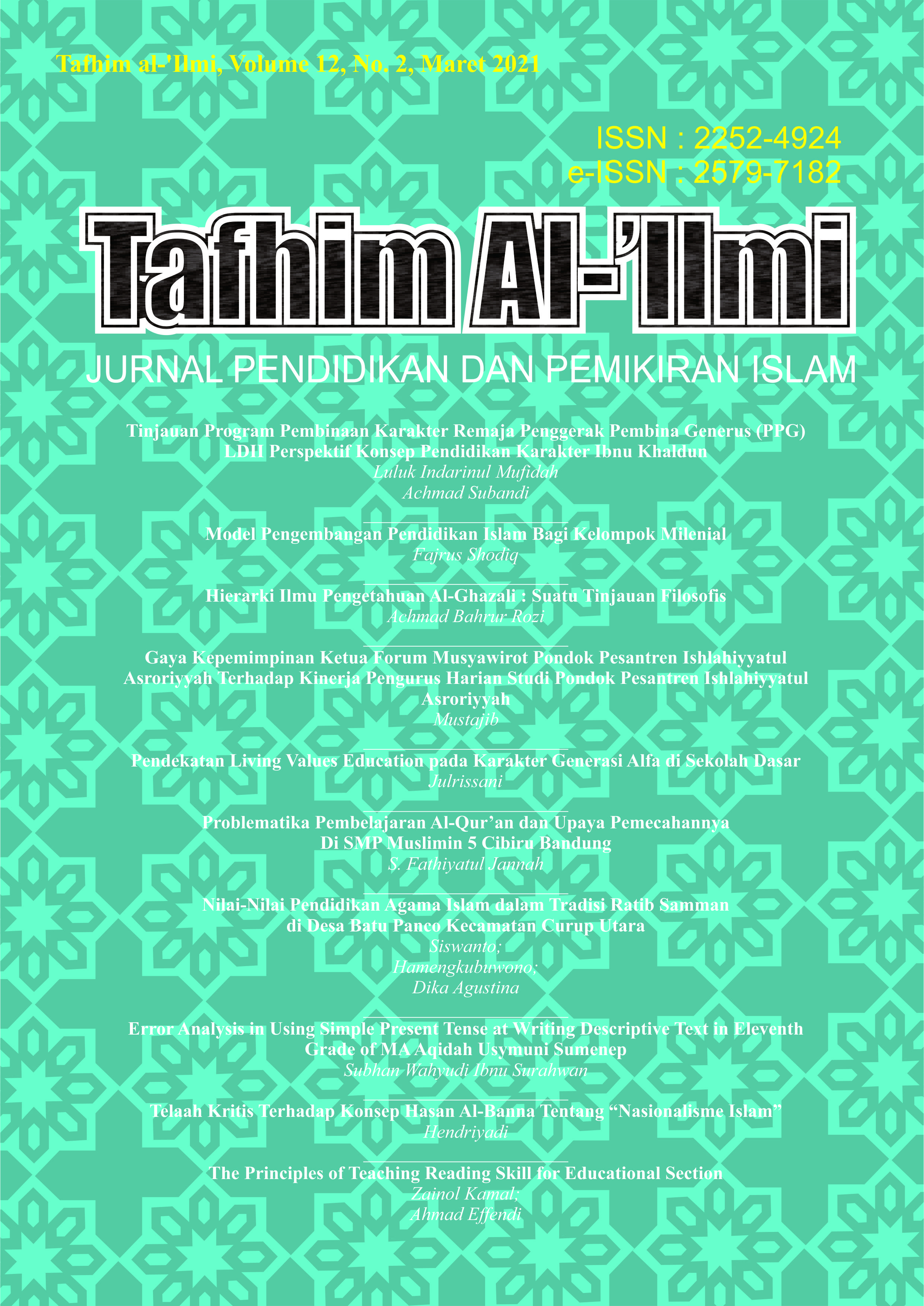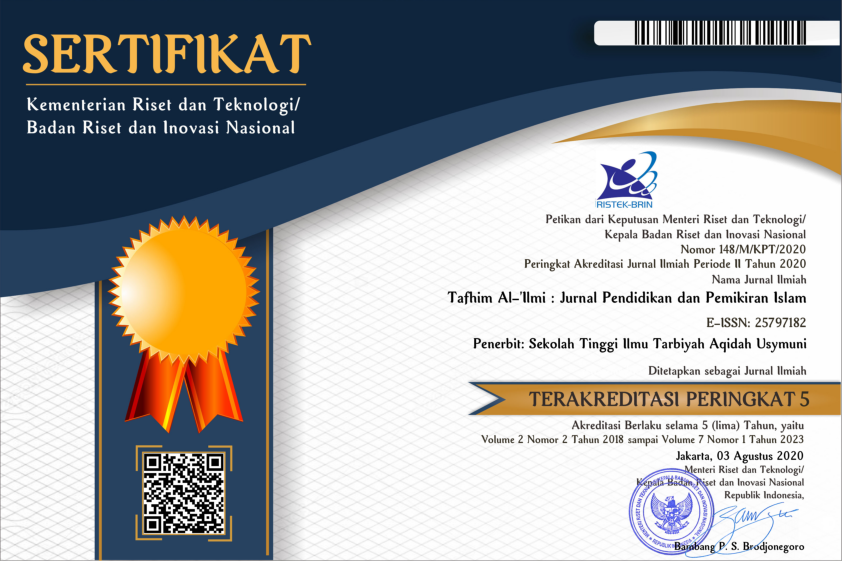Tinjauan Program Pembinaan Karakter Remaja Penggerak Pembina Generus (PPG) LDII Perspektif Konsep Pendidikan Karakter Ibnu Khaldun
DOI:
https://doi.org/10.37459/tafhim.v12i2.4452Abstract
Abstract The research aims to examine the character building programs by PPG DPD LDII from the perspective of Ibnu Khaldun's thoughts. The results of this study indicate that; First, the methods or methods used by PPG DPD LDII, using the following four methods: (1) Planning and formulating character building programs by PPG DPD LDII every year. (2) Collaborating with the five elements of character building, which consist of the community, namely parents, clerics / ustadzah, organizational administrators, expert educators and psychologists, as well as art and sports experts. (3) Dividing the next generation into several classes, namely (a) Cabe Rawit Class consisting of ages 3-12 years, (b) Pre-Adolescent Class consisting of 13-15 years old, (c) Youth Class consisting of 16-20 years old and (d) pre-marital classes consisting of ages 21-30 years. (4) Evaluation, evaluation is held every week, every month and at the end of every year, together with character coaches and administrators of DPD LDII. Second, the target of the character development program for the next generation is Tri Sukses Next Generation and Six Thobiat Luhur, Tri has been successfully educated from: pious and fakih, akhlaqul karimah and independence. While the Six Thobiats consist of: Rukun, compact, good cooperation, honest, trustworthy and Mujhid muzhid. Third, when the researcher analyzed the program of character building for the next generation (LDII) with Ibn Khaldun's thoughts, the researcher found a match between culture. Even though it doesn't have a naming Keywords: Character Education, PPG LDII, youth development.Downloads
Published
2021-03-31
How to Cite
Mufidah, L. I., & Subandi, A. (2021). Tinjauan Program Pembinaan Karakter Remaja Penggerak Pembina Generus (PPG) LDII Perspektif Konsep Pendidikan Karakter Ibnu Khaldun. Tafhim Al-’Ilmi, 12(2), 170–182. https://doi.org/10.37459/tafhim.v12i2.4452
Issue
Section
Articles








